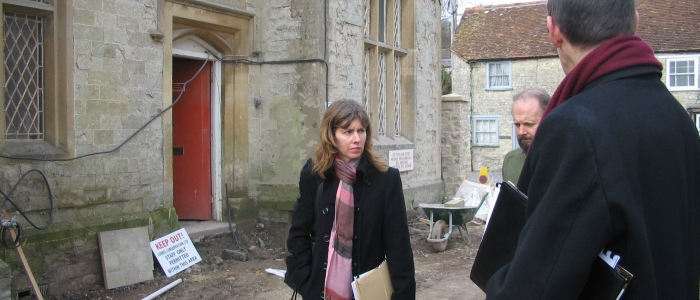
Pre-application discussion of works to a listed building, involving the council and a national amenity society
Pre-application advice
 By Matthew Slocombe
Published 11 February, 2013
By Matthew Slocombe
Published 11 February, 2013
Matthew Slocombe is Director of the Society for the Protection of Ancient Buildings (SPAB) and author of the Shire book ‘Traditional Building Materials’.
Preparing a detailed scheme for change to an historic place involves time, trouble and expense. Once this work has been carried out, applicants may find it irksome to rethink their ideas. In this situation, if interested parties such as the local planning authority, town or parish council, or a heritage organisation hear about the proposal at a late stage and have concerns about it, formal objections may result. This can cause tension and confrontation, a protracted application process, and even appeals and public hearings. A way to help avoid such problems is through pre-application discussion. The National Planning Policy Framework advises that:-
Early engagement has significant potential to improve the efficiency and effectiveness of the planning application system for all parties. Good quality pre-application discussion enables better coordination between public and private resources and improved outcomes for the community. (NFPF para 188)
Who to involve and what it will cost
Some local planning authorities will provide free pre-application advice, though increasingly fees are charged. Fees can apply whether of not a listed building is involved. To be faced with a fee for advice can seem off-putting, but it is usually money well spent in view of the cost and trouble that may otherwise result if revision is needed to detailed proposals or a fresh application has to be made. Equally useful can be to involve other interested parties in pre-application discussions. There is rarely a charge for this, but identifying those potentially interested may require some thought and investigation. Local and national amenity societies and the town or parish council, as well as other consenting bodies such as the Highways Authority or Environment Agency, all need to be considered.
Information and engagement
The objective of pre-application discussion is to engage constructively with bodies and individuals in order to establish their views as part of the development of detailed proposals. To do this, sufficient information must be presented so that interested individuals or organisations are in a position to discuss plans and form opinions. If pre-application discussion is to work well, those offering comments must engage positively with the process, keeping an open mind about the ideas presented. During the process it will be most constructive if consultees do not merely draw attention to any areas of concern but also indicate what they are prepared to accept. or would prefer to see. Many advisory bodies, ranging from local civic societies to the National Amenity Societies, will have considerable knowledge and expertise to contribute. This should be used positively by applicants to help shape and improve their applications. Through constructive early discussion, consensus can often be reached.